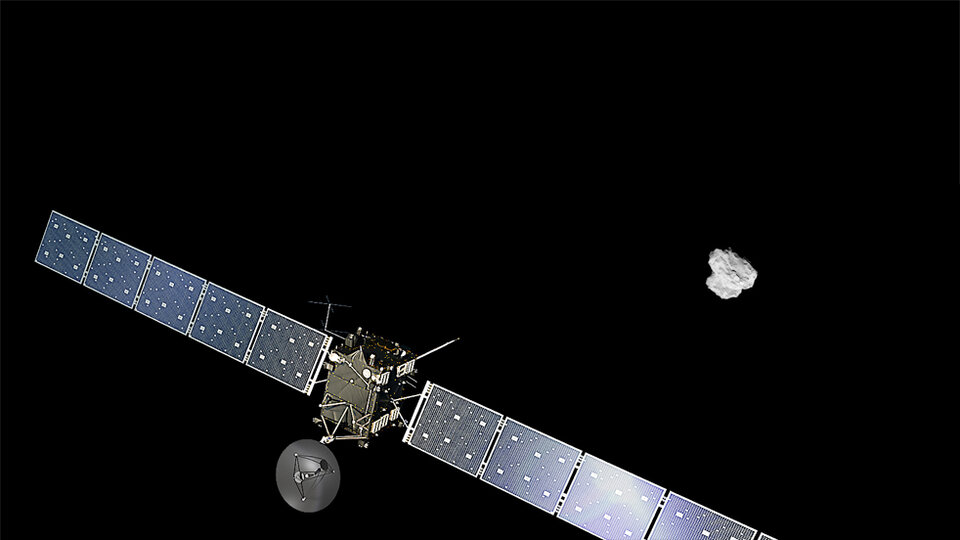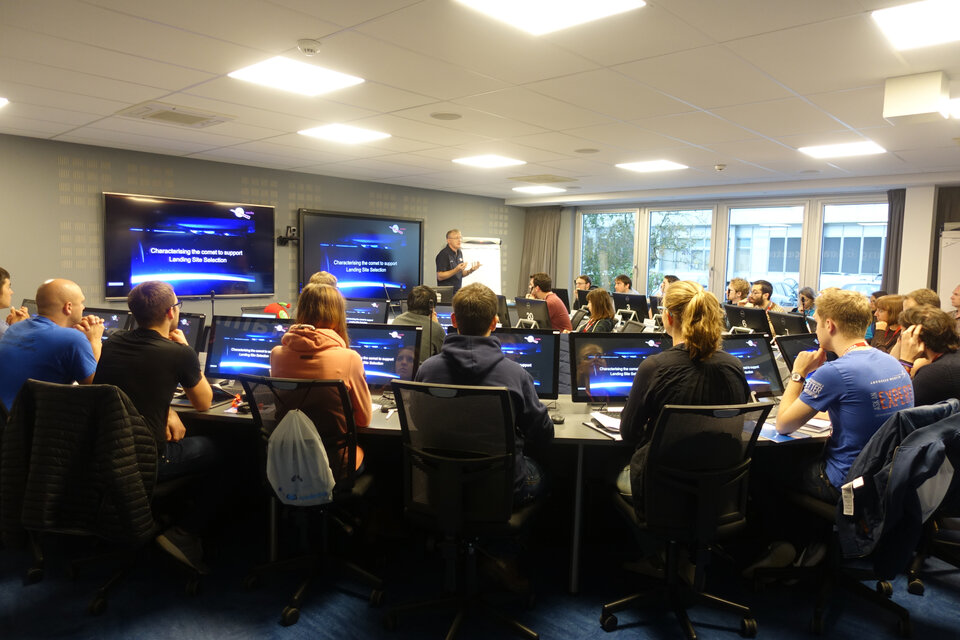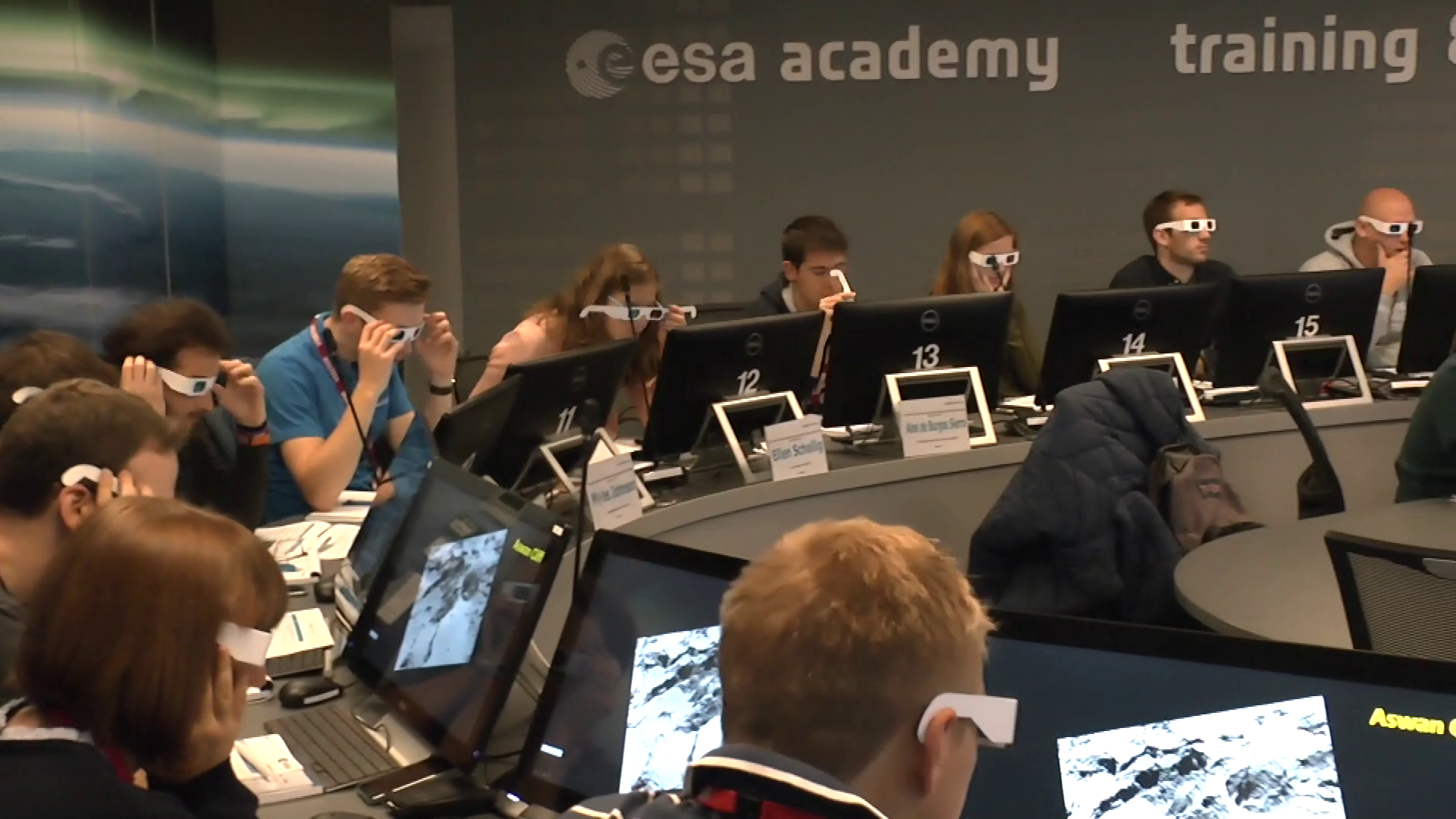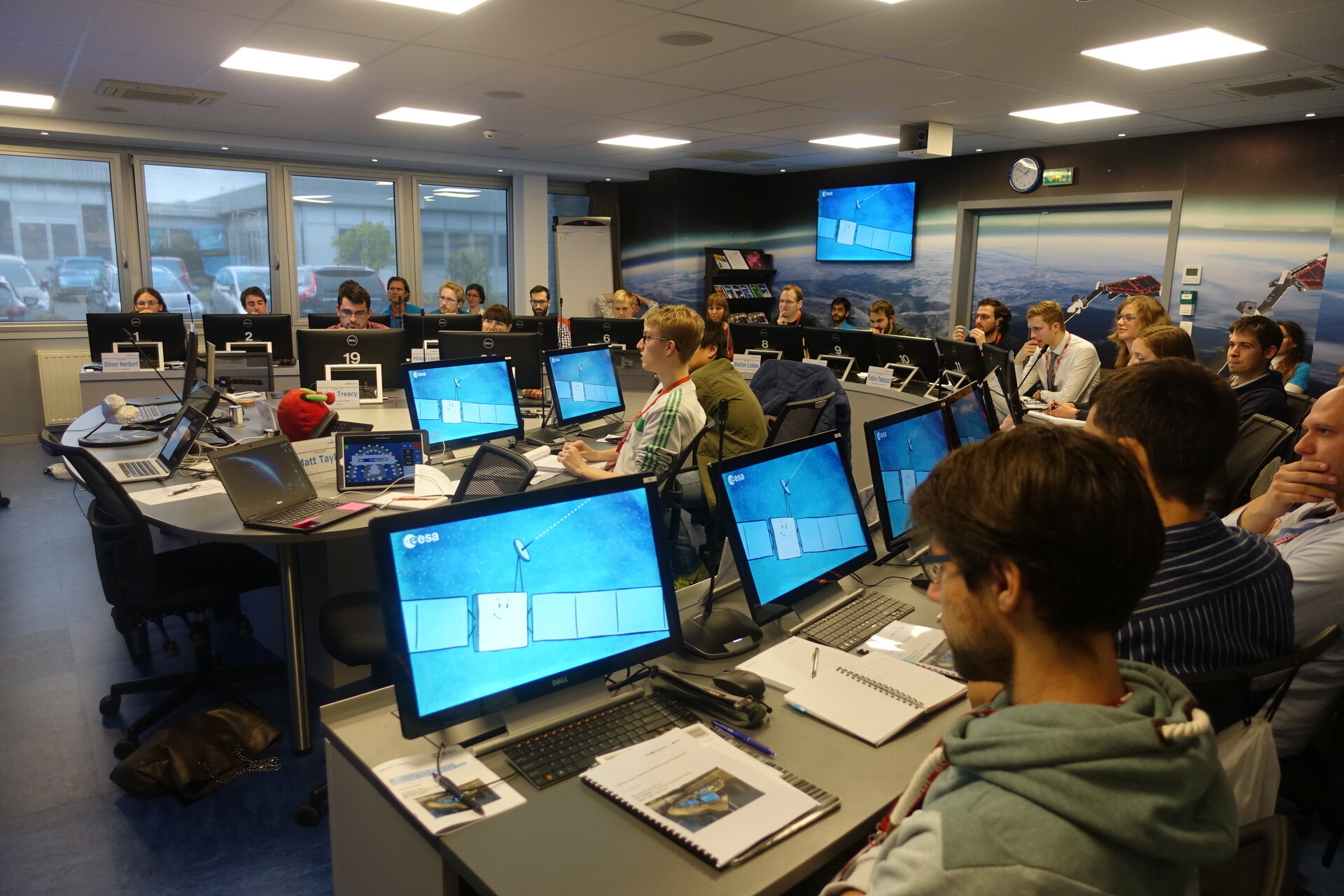Students wanted for the second edition of the Rosetta science operations scheduling legacy workshop
Between 2014 and 2016, ESA’s comet mission Rosetta commanded the world’s attention. Although the most publicly visible moment came in November 2014 with the bumpy landing of Philae onto the surface of the comet, the whole two years at the comet presented unique challenges for the Rosetta team and in particular the Rosetta science operations group who performed the science scheduling of the mission.
Performing science operations around the Comet was never easy. It required an excellent understanding of the Rosetta Spacecraft’s capabilities and the science requirements. With so many instruments on a spacecraft, each science team was actively negotiating to get what they needed to fulfil their science objectives. There were operational constraints such as the power, available data rate and pointing to be taken into account. For each scenario, these needed to be carefully analysed and scheduled in order to achieve the desired scientific results.
ESA Education Office is offering in collaboration with the Science Operations Department for the second time the Rosetta Science Operations Scheduling Legacy Workshop. It aims to give university students from ESA Member and Associate States an understanding of science operations scheduling. It will do this through analysis and scheduling exercises based on the Rosetta’s science operations performed around the Comet, including the Rosetta Philae Lander descent and the search for it that followed.

During this workshop, university students will learn how science operations scheduling is done at ESA and what tools are used. Exercises will be performed with the support of the experts who did the scheduling for the real mission using the actual science operations scheduling software (MAPPS) that produced the final experiment commanding for the spacecraft. These exercises will be supported by lectures given by various members of the Rosetta team including the project scientist, spacecraft operations manager, ESA Philae system engineer and individuals who were involved in building the actual spacecraft. In addition, the students will learn how to access the science data that these schedules produced via the Planetary Science Archive.
Students will be divided in groups of 3-4 students to work on different assignments. Throughout the workshop, they will be given the opportunity to present their results to the experts and the rest of the students. Students will be evaluated and provided with a certificate of participation and a course transcript. These documents can be used to claim ECTS credit to their respective universities.
The Workshop will take place at ESA Academy’s Training and Learning Facility, ESEC-Galaxia, in Transinne, Belgium, between 2-5 April 2019.
The deadline for applications is 20 February 2019 23:59pm CEST.
Preliminary schedule:
| Day 1 |
Rosetta Mission Overview Rosetta Spacecraft Design Rosetta Spacecraft Engineering MAPPS Introduction MAPPS 3D Functions Group Exercise |
| Day 2 |
Rosetta Instruments Overview Rosetta Instrument Teams Rosetta Science Ground Segment & Science Operation Planning Tour of ESEC Rosetta Mission Operations Science Pointing Timeline Overview Instrument Timelines Overview Group exercise |
| Day 3 |
Philae Lander Group exercise |
| Day 4 |
End of Mission Operations Philae Search Overview Rosetta Special Operations Group exercise |

Who can apply?
Students who fulfil the following criteria:
• be aged between 18 and 32;
• be a citizen of an ESA Member States, Canada and Slovenia;
• be enrolled as a full-time MSc or PhD student in a university (not graduating before the workshop);
• be studying an engineering subject or physics.
The selected students will be sponsored by ESA. The sponsorship will cover accommodation and meals as well as up to 200 euros for travelling to Belgium.
How to apply?
- Fill in the application form;
- Upload a motivation letter (PDF, maximum 1 page, no images);
- Upload a CV (Europass format, PDF, maximum 2 pages);
- Upload a formal recommendation letter (PDF, maximum 1 page, including signature, no images) from a university professor or academic supervisor of current university;
- Upload a copy of academic records (PDF, in English, with the university stamp).
All answers and documents should be in English (except academic records if not available).
For more information, please contact tlp @ esa.int


Access the video


